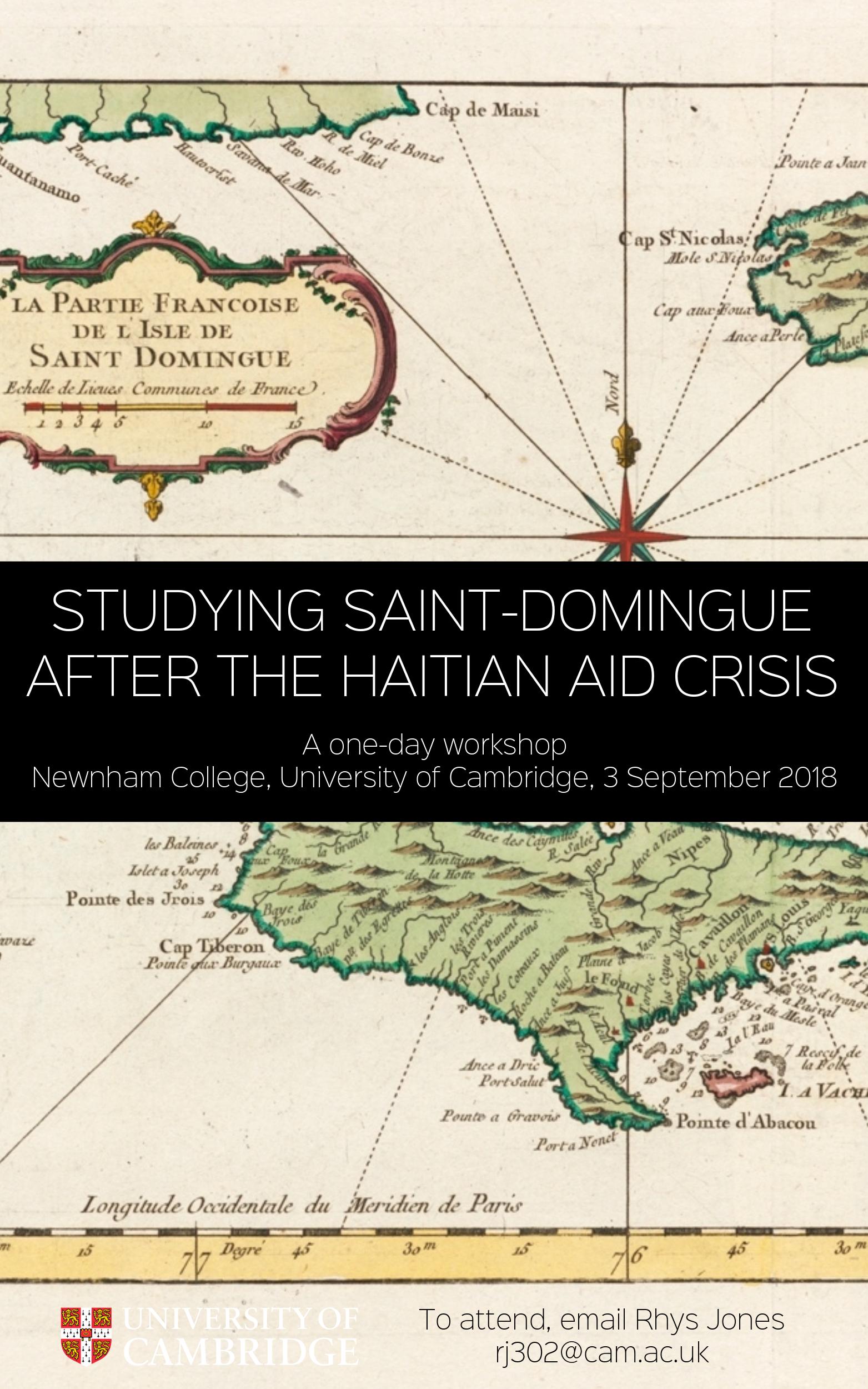
Submitted by Di Kennedy on Tue, 04/12/2018 - 16:24
Studying Saint-Domingue after the Haitian Aid Crisis
3 September 2018
Newnham College, University of Cambridge
This workshop was led by Dr. Rhys Jones, Research Fellow in History at Sidney Sussex College, and Dr. Jenny Mander, Fellow and Director of Studies in Modern and Medieval Language at Newnham. In collaboration with the Centre for the Study of Global Human Movement, the day considered how scholars of colonial Haiti (Saint-Domingue) should approach their subject matter in the wake of sexual misconduct and corruption accusations made against aid workers in Haiti earlier in 2018. The attendees represented a huge diversity of experience and opinion: the Haitian diaspora, United Haitian in the UK, the Haitian Support Group, the Ethical Journalism Network, the European Union diplomatic service, the Haitian tourism industry, Christian Aid and other interested charitable organisations, and UK higher education centres, including several academics from the University of Cambridge.
The day was divided into three panel discussion, arranged loosely around the:
- role of historical consciousness for stakeholders in present-day Haiti (i.e. members of the Haitian diaspora, aid organisations, journalists, diplomatic corps);
- role of identity and the act of writing the history of Haiti (a discussion led primarily by British-based academic historians); and
- challenge of building collaborations across the academy and beyond in the study of colonial Haiti (i.e. developing networks between scholars interested in the past and those individuals who work in present-day Haiti).
Participants discussed the politics of aid provision, the importance of knowledge about the colonial period in contemporary Haitian society as well as the long history and ongoing role of western intervention. It was especially helpful to hear from Haitians themselves about what scholars of Saint-Domingue can do better to offer a more holistic picture of their colonial past. In the more academic second panel, participants wondered how anglophone European academics could better position their research on Saint-Domingue in the twenty-first century, especially given the need for sensitivity around:
- neo-colonialism,
- the challenges of socio-linguistic distance,
- the dispersal of the Haitian archive, and
- the present push to decolonize academic curricula in the UK.
This proved particularly pertinent (and a stimulus for discussion) amongst the several graduate students who attended and participated in the debate.
It was decided that a more formalised collaborative network should be created. It is proposed that, alongside the Ethical Journalism Network, a glossary of discursive terms should be drawn up, similar to several publications already in use by the Network, designed to avoid the stereotypical depiction of Haiti as a dangerous or lawless place. In participation with Jean-Marc Flambert (Your Tourism Partners), discussions are continuing about an exchange programme for British and Haitian scholars.
